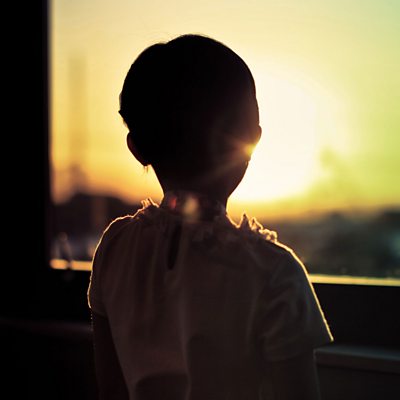Episode details

Available for over a year
Amongst the many joys of parenting is watching with my boy the same cartoons that I used to watch. And one of my favourites is Scooby Doo, first broadcast in 1969, and one of the longest running animated shows ever made. For all these years the premise has remained largely the same. A group of friends seek to uncover the truth behind some apparently supernatural phenomenon. A ghost has been frightening away the locals. And, to begin with, the friends are frightened too. But by the end of the episode, the young sleuths have unmasked the spooky goings on as some deliberate hoax by the caretaker, trying to scare people away from his nefarious activity. What was initially experienced as the supernatural is exposed as having a perfectly natural explanation. On one level, then, Scooby Doo looks like a celebration of sceptical logic. But it cannot just be this - because with every new episode the group’s initial fears return again and again. For nearly 50 years, this same group of friends has exposed mumbo-jumbo with rational deduction, only for another superstitious fright to return at the beginning of the next episode. So however rational, it seems they cannot completely escape their fears. A similar thing presents itself at Halloween. We live in a largely scientific age. Yet at around this time of year, from the Mexican Day of the Dead to Strictly Come Dancing doing all things spooky, there’s an aspect of the supernatural that just won’t go away, however rational our self-image. And surely one of the reasons we go in for this sort of thing is to play out some of our unexpressed fears about death, about the unknown, so as to mock them or to put them in their place. Halloween is a sort of coping mechanism. Halloween started out as a Celtic festival, probably a celebration of ancestor worship. And Christianity imposed the festivals of All Saints and All Souls on top of ancient pagan worship so as to claim and reinterpret it. Many of the traditions of Halloween are medieval Christian, but they also have an anarchic quality that has never been tamed by the Church. Something bubbles up at Halloween that cannot be restrained with logic or formal religious ceremony. And it’s a basic driver of popular religion, common across many cultures and periods of time. “This world is not conclusion,” wrote the poet Emily Dickenson. It may be the fundamental instinct behind all religious thinking. For however much we want to control or contain the unknown, there is always some remainder that nibbles away at us. Organised religion draws from this and tries carefully to sculpt it. But for disorganised religion, as it were, what better way of dealing with a fear of the unknown than to send the whole thing up as some ghoulish anarchic pantomime.
Programme Website